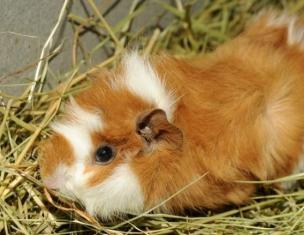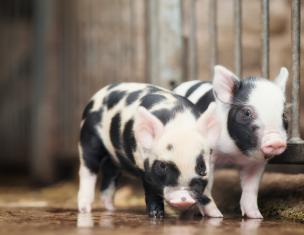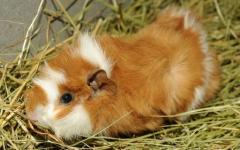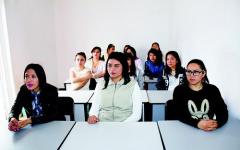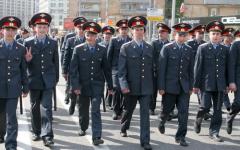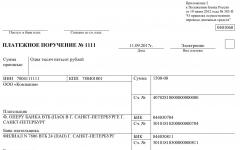Marina Zyulyaeva
Project on the Russian language “In dictionaries - for parts of speech” in 2nd grade
MBOU "Kozlovskaya secondary comprehensive school No. 2"
Russian language project:
"IN dictionaries - for parts of speech!»
Prepared: student 2 class
Zyulyaeva Anastasia
Explanatory dictionary
1. Find in dictionary word"savvy" and read its meaning.
To which this word is part of speech?
Savvy (noun)- quick wits, quick wit, ability to quickly understand, grasp.
2. Which of these adjectives is the same root for this word? Clever, quick-witted, savvy.
3. Make a sentence with in a word"savvy" or with the same root
nom to him in a word. Write it down.
Us often Ingenuity and life experience help out.
Orthographic dictionary
Find in dictionary nouns - plant names
ny. Write it down. Underline the spellings in them. Which groups?
written nouns can be classified by meaning
new? Explain your answer.
Trees: birch, aspen, apple tree.
Berries: strawberries, raspberries, berries.
Vegetables: cabbage, carrots, sorrel.
Fruits: apple.
Synonym dictionary
1. Find in dictionary synonyms adjectives, denoting
general characteristics of objects by color. Write down these pairs words.
Blue - azure, yellow - gold, green - emerald,
red - scarlet, orange - orange, blue - cornflower-
violet - lilac.
2. Which of the recorded adjectives do you use most often?
those in speeches?
Blue, yellow, green, red, orange, blue, violet
3. Make sentences with words any pair of synonyms.
My favorite color is red.
Dictionary of antonyms
1. Find in dictionary verbs
fishing - antonyms.
To meet - to see off, to praise - to scold, to speak - to be silent, to love
to beat - to hate, to please - to upset.
2. Explain how you understand the meaning of such verbs: help
to interfere - to interfere, to approve - to condemn.
To help - to assist something or someone, to promote someone’s activities, to support in business and endeavors.
Interfere - create obstacles, hindrances.
Approve - acknowledge, accept, agree.
Condemn - condemn, disagree.
3. Make sentences with words any pair of antonyms.
Mom and Dad walk me to school every morning.
After school, my grandmother meets me at home.
Orthoepic dictionary
1. Find words- names of people according to their occupation. To which
parts of speech they refer to? How many are used? Record-
sew these words like that as they are written in dictionary.
Director (noun singular, director (noun plural). Engineer (noun)
h., engineers (noun plural). Carpenter (noun singular, carpenters (noun plural)
h.). Chauffeur (noun singular, chauffeurs (noun plural).
2. In the pronunciation of which words you make mistakes? Say these the words are correct.
Director, director. Engineer, engineers. Carpenter, carpenters.
Driver, drivers.
3. Write these down words. Indicate the emphasis in them.
Dictionary of cognates
1. Write out words with root -zim-. Select the root in them.
Winter (noun, winter (adj., winter quarters (noun, winter) (ch.).
2. Point above each in a word, Which it is part of speech.
3. Compose with any of these words sentence. Underline in
its main members.
Winter has finally arrived!
II part – practical.
MY PROJECT"IN dictionaries - for parts of speech!"
Explanatory dictionary
1. Find in dictionary highlighted words and read their meanings. To which These words belong to parts of speech?
If you see in the picture
A river is drawn
Or spruce and white frost,
Or a garden and clouds,
Or a snowy plain
Or a field and a hut -
Required picture
It's called a landscape.
Orthographic dictionary
1. Find in dictionary nouns - names of the month -
tsev. Write it down. Underline the spellings in them.
2. What groups can the recorded
nouns? Explain your answer.
Synonym dictionary
1. Find in dictionary verbs. Write down any five pairs of verbs
fishing - synonyms.
2. Make up sentences with words any pair of synonyms.
Dictionary of antonyms
1. Find in dictionary adjectives. Write down any
Five pairs of adjectives - antonyms.
2. Explain how you understand the meaning of such adjectives -
nykh: rude - polite, simple - complex.
3. Make sentences with words any pair of antonyms.
Orthoepic dictionary
1. Find words- names of clothing items. To which parts
speeches they refer to? In what number are they used? Write these down
words like that as they are written in dictionary.
2. In the pronunciation of which words you make mistakes? Say
these the words are correct.
3. Write these down words. Indicate the emphasis in them.
Dictionary of cognates
1. Write out words with root -snow-. Select the root in them.
2. Point above each in a word, Which it is part of speech.
3. Compose a text with these words. Underline the main clauses in the sentences.
Class: 2nd grade
Educational complex "School of Russia"
Textbook: “Russian language” 2nd grade, V.P. Kanakina, V.G. Goretsky, M. “Enlightenment”
Lesson topic: Project “Into dictionaries - for parts of speech!”
Target: formation of educational competencies of students (informational, communicative, reflective, creative) through the implementation of the monoproject “Into dictionaries for parts of speech.”
Learning objectives aimed at achieving personal learning outcomes:
- fostering a sense of pride in the native Russian language;
- formation of personal meaning of learning;
- formation of independence and personal responsibility for one’s actions, including in information activities;
- formation of a respectful attitude towards other opinions, other points of view;
- development of goodwill and emotional and moral responsibility.
Learning objectives aimed at achieving meta-subject learning outcomes:
- developing the ability to search for the necessary information to perform learning task using dictionaries;
- developing the ability to combine theoretical material with practical activities;
- development of thinking operations: comparisons, juxtapositions, highlighting the superfluous, analysis, synthesis, generalization, classification;
- developing the ability to plan, coordinate, control and evaluate one’s activities;
- developing the ability to competently construct speech utterances in accordance with
communication tasks and compose texts in oral and written forms;
- developing the ability to work in groups.
Learning objectives aimed at achieving subject learning outcomes:
- development of speech, thinking, imagination of schoolchildren, the ability to choose language means in accordance with the goals, objectives and conditions of communication;
- developing the ability to use acquired knowledge to solve cognitive, practical and communicative problems;
- clarify students’ ideas about dictionaries, their types and purposes;
- develop the ability to use " Explanatory dictionary", "Spelling dictionary", " Spelling dictionary", "Dictionary of antonyms" and "Dictionary of synonyms", "Dictionary of cognate words", find useful information in dictionaries, create your own tasks, for which you will need dictionaries;
- develop the ability to participate in presentations;
- generalizing students' knowledge about parts of speech;
- fostering a positive attitude towards correct oral and writing as indicators of a person’s general culture.
Equipment and materials
- Textbook “Russian language” 2nd grade (2 hours) V.P. Kanakina, V.G. Goretsky. Enlightenment 2011.
- Dictionaries:
1) Explanatory dictionary of the Russian language for elementary school. Shvedov S.M. 2006 “Modern Word”.
2) Write without mistakes. Schoolchild's spelling dictionary. Ushakov O.D. 2009. “Litera”.
3) School word-formation dictionary of the Russian language. Tikhonov A.N. 1996.
4) School spelling dictionary of the Russian language. Vvedenskaya L.A. Publishing center "March" 2006
5) School dictionary of antonyms in the Russian language. Lvov M.R. Education. 2009
6) School dictionary of synonyms of the Russian language. Compiled by A.A. Medvedev Centerpolygraph 2007
- Cards for group work
- Instructions for organizing joint activities
|
Lesson steps |
Teacher activities |
Student activities |
Formed UUD |
|
I. Organizational moment |
Greets students. Checks readiness for the lesson. |
Greet the teacher and each other. They wish you success. They sit down in groups (6 groups of 4-5 people), prepare for the lesson. |
Communication: development of goodwill, emotional and moral responsiveness. Regulatory: self-regulation. |
|
II.Immersion in the project. |
Clarifies children's understanding of the project as a type of activity during the conversation. What is a project? What projects did you participate in? Stimulates students' interest in the topic of the project. Introduces the saying: “Not the educated person who knows everything (this is impossible), but the one who knows where to find the answer to the question that has arisen.” Organizes a conversation. Where can we find answers to emerging questions? What will the project be dedicated to? Creates an emotional mood using the poem by Ya. Kozlovsky “Russian speech sovereign, nicknamed dictionary!” (Appendix No. 1) Introduces the topic of the project. |
The concept of the project is voiced. Answer questions. Answer questions. Make assumptions about the topic of the project. Listen to a poem. Discuss the topic of the project, the subject of research with the teacher. |
Personal: realize the personal meaning of the teaching; have motivation for learning activities. Regulatory e: forecasting. Cognitive: conscious construction of a speech utterance; putting forward hypotheses. Communication: the ability to listen and hear, express your thoughts. |
|
III. Updating knowledge |
Organizes a conversation to clarify and concretize existing knowledge: What dictionaries do you know? What purpose is each dictionary used for? By what rules was it built? Remember the alphabet and guess the words encrypted with numbers: (parts of speech) |
Answer questions. Listen to the statements of students (one representative from each group - according to the number of dictionaries) about dictionaries. They share their impressions, ask clarifying questions, and complement statements. |
Personal: do not be afraid of your own mistakes and be willing to discuss them. Regulatory e: carry out self-monitoring of knowledge, understand the action guidelines indicated by the teacher in the educational material. Cognitive: analysis of objects in order to extract features. Communication: mastery of monologue and dialogic forms of speech. |
|
IV. Staging Problems |
Helps to formulate the problem and purpose of the project. Do you know how to work with dictionaries? Today we will take a closer look at some types of dictionaries and learn how to use them. You will learn what questions can be answered in dictionaries. Create your own assignments. |
Formulate the problem and goal of the project with the help of the teacher. |
Regulatory: goal setting. Cognitive: formulation of a cognitive goal; formulation of the problem. |
|
V. Group work 1. Solving the proposed grammatical problems using dictionaries. 2. Compiling your own tasks (projects) using the dictionary and preparing them for presentation. |
Organizes the game “Search Engine” (Each team receives a route sheet with tasks. To complete each task, it is necessary to determine the appropriate dictionary and complete the task. As a result, each team must work with all dictionaries) (Appendix No. 2) Observes, advises, answers questions, helps distribute roles in groups. |
Complete the proposed tasks in groups using dictionaries. Document the completed task in the route sheet. They think through tasks using their vocabulary. The most interesting ones are chosen. They are thinking about how they will present their dictionary. Distribute responsibilities among group members. They draw up the project. |
Personal: respond adequately to difficulties and not be afraid to make a mistake. Regulatory: plan (in collaboration with classmates and the teacher) your actions to solve the problem; act according to plan; analyze the course and method of action. Cognitive: searching for necessary information in reference literature, using it to solve educational and cognitive problems; orientation and perception of scientific texts; generalization, analogy, comparison, classification of objects. Communication: enter into educational collaboration with classmates, participate in joint activities; evaluate the thoughts and advice of other people, take them into account; participate in the general conversation, following the accepted rules of speech behavior. |
|
VI. Product presentation (carried out a few days later during extracurricular activities) |
Organizes a presentation. If necessary, advises students on how to prepare a presentation. |
Groups of students take turns presenting their vocabulary and asking other students to complete the assignments. Act as experts, i.e. ask questions and make comments (when presenting to other groups) based on established assessment criteria. |
Communicative: the ability to express one’s thoughts and construct statements with sufficient completeness and accuracy; Regulatory: control, adjust, evaluate the actions of partners. Cognitive: structuring the information found in the required form; conscious construction of a speech utterance in oral form; control and evaluation of the process and results of activities. |
|
VII. Reflection |
Summarizes and summarizes the results obtained. Summing up. What project were you involved in? What is the value of this project for you? What skills and abilities have you discovered in yourself and in your comrades? |
Answer questions. They comprehend and evaluate their activities in the lesson. |
Personal: adequate self-esteem. Regulatory: the ability to evaluate one’s own and others’ activities. Cognitive: awareness of the quality and level of mastery of the material. |
Bibliography.
- Asmolov A.G. How to design universal learning activities V primary school. From action to thought. M. Education, 2011.
- Zemlyanskaya E.N. Educational projects for junior schoolchildren. “Primary School”, 2005, No. 9.
- Project method in elementary school. Implementation system. Author: Zasorkina N.V., Shatilova M.Yu. and others - Volgograd: Teacher, 2012.
- Oleinik O.V., Kabanyuk L.P. Project activities. Teaching methodology. M. "Vako", 2013.
- Pakhomova N.Yu. Educational project method in educational institution. M., 2005.
- Sergeev I.S. How to organize student project activities: practical guide for employees educational institutions. M.: ARKTI, 2003.
- Feoktistova V.F. Research and project activities younger schoolchildren. Recommendations, projects. - Volgograd: Teacher, 2012.
Annex 1
Y. Kozlovsky
Russian speech sovereign
By nickname dictionary
There is a magical country
What is open before you,
The one who, in words,
Like people, populated.
The sovereign rules over them,
Nicknamed Dictionary.
And he treats them
As if to his subjects.
It’s not new for him to assert,
How to write any word
How to combine with others.
We respect your sir
Nicknamed Dictionary,
Even Pushkin, I mean that
I say with confidence
More than once for advice
I consulted the Dictionary.
He connects the new and the old.
And always to you, as a friend,
Ready to provide a service
Russian speech sovereign
Nicknamed Dictionary!
Appendix 2
ROUTE LIST
Group __________________________________________________________________
Participants: ______________________________________________________________
Sequencing
- Read the grammar problem.
- Decide which dictionary you will use to solve this problem.
- Solve the problem.
- Fill the table.
- Move on to the next task.
- Compose your task using one of the dictionaries.
- Prepare a presentation of your dictionary and the task that requires the presented dictionary.
|
Grammar task |
The solution of the problem |
||
|
Find the word SMART in the dictionary and read its meaning. What part of speech does this word belong to? Make up and write down a sentence with the word "savvy". |
|||
|
Find nouns in the dictionary - names of plants. Write it down. Underline the spellings in them. |
|||
|
Determine the part of speech of these words: yellow, blue, crimson. Choose words that are close in meaning to them. Make sentences with any pair of words. |
|||
|
Look up the verbs in the dictionary. Write down any five pairs of verbs with opposite meanings. Make up sentences using the words of any pair. |
|||
|
Find words that name people by their occupation. Write them down. Indicate the emphasis in them. |
|||
|
Write down the words with their roots -winter-. Select the root in them. Determine what part of speech each word is. |
- Do you know how to work with dictionaries? Use the textbook's dictionaries and solve these grammar problems.
Dictionary
1. Find the word ingenuity in the dictionary and read its meaning. What part of speech does this word belong to?
Savvy - quick wit, quick wit, the ability to quickly understand, be smart.
Savvy is a noun.
2. Which of these adjectives has the same root as this word?
Clever, quick-witted, savvy.
Sharp-witted
3. Make up a sentence with the word ingenuity or with a word of the same root. Write it down.
Our ingenuity and life experience often help us out.
orthographic dictionary
Look up nouns in the dictionary - names of plants. Write it down. Underline the spellings in them. In what groups can written nouns be classified according to meaning? Explain your answer.
Trees: b e reza, o sina, apple nya.
Berries: strawberries, raspberries, berries.
Vegetables: cabbage, carrots, sorrel.
Fruit: apple co.
Synonym dictionary
1. Find in the dictionary of synonyms adjectives that denote characteristics of objects by color. Write down these pairs of words.
Blue - azure, yellow - gold, green - emerald, red - scarlet, orange - orange, blue - cornflower blue, violet - lilac.
2. Which of the recorded adjectives do you most often use in speech?
Blue, yellow, green, red, orange, blue, purple.
3. Make up sentences with words of any pair of synonyms.
She had large cornflower blue eyes.
A snow-white seagull was flying over the blue sea.
Dictionary of antonyms
1. Look up the verbs in the dictionary. Write down any five pairs of antonym verbs.
To meet - to see off, to praise - to scold, to speak - to remain silent, to love - to hate, to please - to upset.
2. Explain how you understand the meaning of such verbs: help - hinder, approve - condemn.
To help is to contribute to something, to contribute to someone’s activities.
Interfere - create obstacles, hindrances.
Approve - acknowledge, accept, agree.
Condemn - condemn, disagree.
3. Make up sentences with words of any pair of antonyms.
We loved meeting the trains.
Mom walked her son to school.
Pronouncing dictionary
1. Find words that name people by their occupation. What part of speech do they belong to? In what number are they used? Write these words down as they are written in the dictionary.
These words belong to nouns. Used in singular and plural.
2. What words do you make mistakes in pronunciation? Say these words correctly.
Director, director. Engineer, engineers. Carpenter, carpenters. Driver, drivers.
3. Write these words down. Indicate the emphasis in them.
Dictionary of cognates
1. Write down words with the root -zim-. Select the root in them.
Noun adj. noun Ch.
Winter/ A, winter/ niy, winter/ Ovye, winter/ ovat.
2. Indicate above each word what part of speech it is.
3. Make a sentence with any of these words. Emphasize the main members in it.
On a winter day, the children will have fun in the yard.
- Compose your assignments using any of the dictionaries. Prepare them for the presentation.
MY PROJECT “In dictionaries - for parts of speech!”
Dictionary
1. Find the highlighted words in the dictionary and read their meanings. What parts of speech do these words belong to?
If you see in the picture
A river is drawn
Or spruce and white frost,
Or a garden and clouds,
Or a snowy plain
Or a field and a hut, -
Necessarily painting
Called scenery.
orthographic dictionary
1. Find nouns in the dictionary - names of months. Write it down. Underline the spellings in them.
2. What groups can the written nouns be divided into? Explain your answer.
Synonym dictionary
1. Look up the verbs in the dictionary. Write down any five pairs of synonymous verbs.
2. Make up sentences with words of any pair of synonyms.
Dictionary of antonyms
1. Find adjectives in the dictionary. Write down any five pairs of antonym adjectives.
2. Explain how you understand the meaning of such adjectives: rude - polite, simple - complex.
Hello guys! Today we have an unusual lesson. Guests have come to us, greet them. Have a seat.
In previous lessons we came to the conclusion that the Russian language has a lot of dictionaries. What are these dictionaries? (listen to the children's answers)
Listen to the poem by Yakov Kozlovsky and tell me where today we will look for answers to the questions
1st student(poem by Ya. Kozlovsky “Russian speech sovereign according to
nicknamed Dictionary"):
There is a magical country
What is open before you,
The one with words.
How people it is populated.
2nd student:
They are ruled by a sovereign
Nicknamed Dictionary.
And he treats them
As if to his subjects.
3rd student:
It’s not new for him to assert,
How to write which word
How to combine with others...
4th student:
He connects the new and the old,
And always to you, as a friend,
Ready to provide a service
Russian speech sovereign
Nicknamed Dictionary!
What will we work with today? (With dictionaries)
Summary:
There are a lot of dictionaries in the Russian language. They are all our helpers. They help you learn a lot about the word. Today we will look into this world of words to learn more about Russian language dictionaries and learn how to use them. Due to their diversity, we will dwell on only a few of them.
appear on the boarddictionaries (can be printed on cards and hung or arrangedexhibition).
The epigraph to our lesson will be the statement
Slide 1.
“Not the educated person who knows everything (this is impossible), but the one who knows where to find the answer to the question that has arisen!”
Read the statement. How do you understand it?
Let's talk about the word on which “the world stands,” which “sparkles brighter than the sun,” “does not burn in fire, does not drown in water,” “is not afraid of judgment,” “is not friends with lies,” “always lives with good people" - What is this word? (IS IT TRUE)
A Russian proverb says: “Tell me who your friend is, and I will tell you who you are.” - Which dictionary, in your opinion, will tell us about friends of the word “truth”?
What information about the word “Truth” can we find in each of the dictionaries?
Guys, listen, in which dictionary can you find information about the word “Truth”? (children speak out)
"I think…"
"I think…"
"May be…"
I draw children's attention to the diversity and inconsistency of assumptions.
You all think differently.
So, the question remains open: in which dictionary can you find all the information about a word? And what can we learn from dictionaries?
What will be the purpose of our research?
Target: find out what purpose each dictionary is used for.
Slide 2.
“A dictionary is the Universe in alphabetical order” (A. France)
How do you understand these words? (words in dictionaries are arranged in alphabetical order)
Remember the alphabet and guess the words encrypted with numbers:
Slide 3.
25 1 19 20 10 (parts of speech) Alphabet hanging
What task will we set in class? (find words of different parts of speech in dictionaries)
Slide 4“In dictionaries - for parts of speech”
In order to explore what purpose each dictionary is used for, you will become researchers. Who are called researchers? What is the name of the room in which research is carried out? (laboratory). We are going with you to a scientific laboratory.
Children are divided into 6 groups in advance and sit at tables.
Now we will work in small groups. In each group I appoint a leader (strong children, hanging up the emblem).
2. Small group research
What are the rules for working in a group? (on everyone's tables). Find it.
1. Work in a group together, remember - you are one team!
2. Take an active part in the work, don’t stand on the sidelines!
3. Don't be afraid to speak your mind!
4. Work quietly, don’t try to outshout everyone! Respect the opinions of other group members.
6. Answer loudly, clearly, briefly at the board.
Let's define research plan(find it on your desks). 1 person reads out.
2. make the necessary notes.
3. prepare for the performance.
Each group is offered for research text material about a certain dictionary (explanatory, spelling, words of Synonyms, words of Antonimov, orthoepic, words of cognate words) and "Answer Helper"(everything is on the tables in advance).
They lie on the tables Russian language textbooks on a stand (4 pcs.)
Guys, after reading the text, you must highlight the main thing about each dictionary, complete the tasks and write everything down in the “answer assistant.”
"Answer Helper"
1. We read about ___________________________________________________.
2. We found out that _____________________________________________________
___________________________________________________________________
___________________________________________________________________.
3.We concluded that this dictionary is needed for
______________________________________________________________________
______________________________________________________________________.
Time is counted with pom. magnets. (approximately 10 min.)
3. Information exchange and organization
Stop! The small group study has been completed.
We move on to the next stage INFORMATION EXCHANGE.
4. Exchange of information
We will work as follows: each group takes turns going out and telling the whole class about the dictionary that they studied. (textbook, p. 114)
We will complete the tasks together.
Do you have anything to add to what your manager said? (Well done, you completed the task successfully).
The teacher adds the necessary information as the children tell their stories.
5. We talked about many dictionaries today, let’s look at 1 more. _________ will tell us about it.
ETYMOLOGICAL DICTIONARY.(get it from the library)
The purpose of an etymological dictionary is to give the history and origin of words. After all, every word has its own history, its own destiny, its own life. It’s not for nothing that they say that not only people have a biography, but also words. S. Ostrovoy’s poem “Pirogeniture” is about this:
You get used to the words day by day.
And they are full of original meaning:
And when I hear: “Excuse me!” -
This means: "Exclude me from guilt!"
The word has roots. And there are relatives.
It is not a foundling under an orphan bush.
And when I hear: "Protect me!"
This means: "Hide me behind the shield!"
Listen. Get into it. Don't forget.
The word has its own temper. Your gut.
And if you get into the essence of this -
The word will do you good.
- Guys, have any of you thought about the origin of the word that we say when we thank a person for something?
- What is this word? (Thank you . Find the meaning of the word in an etymological dictionary)
Is it true(find it in the etymological dictionary)
So let's, friends, let's penetrate into the essence of the word, into the true meaning of the word, into the original meaning of the word, let's be kind and smart. And the etymological dictionary will become your reliable assistant, like other dictionaries of the Russian language.
6. Linking information, generalization.
We exchanged information and learned about each of the dictionaries. Now let's summarize.
Let's return to the purpose of our study. (find out what each dictionary is used for).
What can you say about each of the dictionaries?
What conclusion can be drawn? (listen to the children, formulate a generalization).
Absolutely, right. Dictionaries are our assistants.
Who creates dictionaries? ______ will tell us this
Dictionaries are created lexicographers.
Slide
The science that deals with the compilation of dictionaries and their study is called lexicography.
The most famous lexicographers were: Dal, Ushakov, Ozhegov.
When was the very first dictionary published?
It was a long time ago. The first printed dictionary was called Lexis. It was compiled by Lavrenty Zizania in 1596. This dictionary contained only 1,061 words. This is a lot for those times.
And what should be the approximate lexicon person?
In order to understand each other in a normal conversation, 4-5 thousand words are enough, although this is not enough for expressive speech. An adult educated person has a vocabulary of approximately 10-12 thousand words.
Conclusion: The more words a person knows, the more accurately, vividly, more figuratively he expresses his thoughts, the better his speech and language. After all, it is known that speech is an indicator of a person’s intelligence, an indicator of his culture.
The conversation about dictionaries is endless. We met only a few of them. Today, I think you understand how important it is to be friends with dictionaries. They help you learn a lot about the word. Every literate person very often turns to dictionaries in his life. I think that these wonderful dictionaries will definitely become your friends.
Let's turn to the purpose of our study. (find out what purpose each dictionary is used for)
Have we reached our goal? Yes. Well done. Well done today.
6. Summing up. Reflection.
Pictures are attached to the board:
I learned something new
I want to tell others what I learned
It was boring and uninteresting
Now let's show our attitude to the lesson. There are magnets on the tables. Everyone will take 1 magnet and attach it to the desired picture.
Many of you left magnets in the second picture.
“dictionary of kind words”, “dictionary of polite words”, “forest dictionary”, “sports dictionary”. Draw covers for your dictionaries.
Tasks for each group
DICTIONARY



